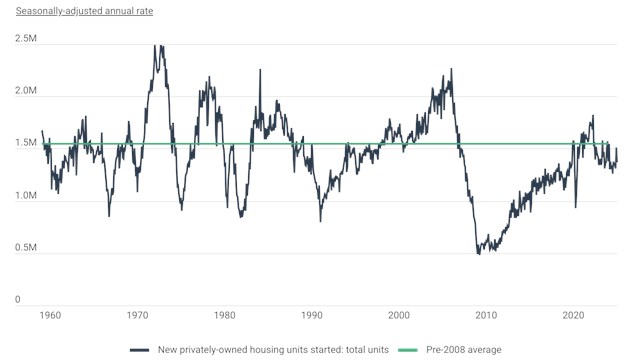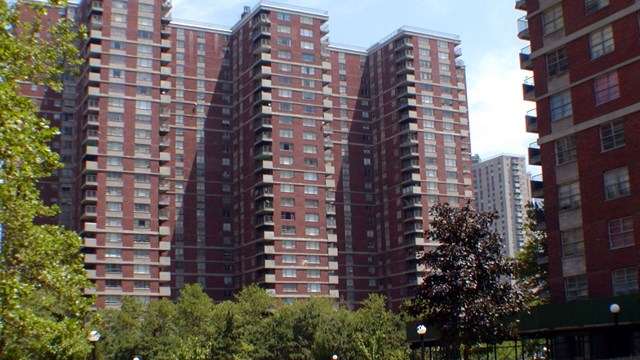As one year ends and a new one begins, talk turns to New Years' resolutions—everybody has a wish or a plan for how they'd most like 2008 to unfold. For some, a happy New Year includes the fortitude to stick to a sensible diet (finally!). For others, it's going to the gym, quitting smoking, or finally telling great-aunt Mabel where to get off.
For folks working in New York City's dynamic real estate market, wishes and hopes for the next year are a little broader. They run the gamut from peace on earth to personal and professional development, with a side order of, well, order.
Stay Stable
Extremes are something New York real estate industry players know a bit about, from market volatility to record-breaking prices. Given what's going on with home prices and mortgage woes in other parts of the country, hopes of stability and steady gains were voiced by many of the professionals polled for this article.
Adelaide Polsinelli, a broker with the Manhattan-based Besen & Associates Platinum Team and president of her Fifth Avenue co-op building, says that finding a new super for her building is her number-one wish for this year— but that as an investment sales broker, she "hopes that no one loses money on their real estate investments as we navigate through these choppy times, and that all my fellow brokers and investors enjoy a healthy happy and successful 2008."
Barring some massive and unforeseen shift, it's likely she'll get that wish. Contrary to the bad housing industry news in markets all across the country, the New York City housing market—and Manhattan in particular—has stayed robust, despite the subprime mortgage debacle shaking other parts of the nation.
According to statistics from Brown Harris Stevens, a Manhattan real estate brokerage, "A 26 percent increase in sales from a year ago demonstrates that buyers remain confident in [the] market, due in part to favorable economic conditions in New York City. The concern over the rapid pace of development in Manhattan seems to have abated, as new buildings are showing solid sales and prices. With interest rates remaining low and inventory dipping from the inflated levels of last year, the outlook for the market remains positive."
No Time for Crime
Elizabeth Stribling of the New York City brokerage firm Stribling & Associates says she hopes that the city will continue to be as safe and beautiful in 2008 as it has been in the past several years—and it looks like she may get that wish as well. New statistics released by the New York City Police Department (NYPD) in December 2007 indicate that crime rates in the city continue to fall—homicides decreased 17 percent between 2006 and 2007, and violent sexual assaults dropped 11 percent. Transit system crimes and theft also saw double-digit decreases. That makes 17 consecutive years of waning crime; according to Mayor Michael R. Bloomberg, the city is likely to experience fewer than 500 murders for the first time since records were kept.
"If you go back to the early 1990s," said Bloomberg in a statement released with the latest NYPD statistics, "this was the worst city in the world for crime. Today, it's the best city in the United States. Just think about it—you've gone from one extreme to another."
The Greening of the Big Apple
With global warming, climate change, and all the frightening potentialities contained in those terms looming large in the public consciousness, it comes as no surprise that many of those polled for this story wished for an end to environmental offenses, and looked forward to more green development in the city. For the first time, the theme of sustainability and energy conservation emerged—like a new plant through a sidewalk crack.
In addition to market growth and dwindling crime statistics, Michael Jay Wolfe of Midboro Management in Manhattan says he'd also "like to see continued research and exploration for alternative energy, green building, and green products."
For her part, Council of New York Cooperatives & Condominiums (CNYC) president MaryAnn Rothman says, "Peace on earth is always nice. I'd also like to see continued progress towards greening the city—such as the mayor's initiative to plant more trees—and a better awareness of conserving energy and making buildings better for the environment."
Rothman's wish for a more environmentally-friendly New York City is on track as well; the city is getting greener all the time. On December 12th of last year, Mayor Bloomberg introduced his New York City master plan—PlaNYC, which addresses conservation and sustainability challenges and goals for the city through the year 2030. In addition to that, residential developers are incorporating green materials, building methods, and amenities into their projects like never before.
According to Carol Willis, founder and director of the Skyscraper Museum and quoted by the New York Times last winter, "We really have reached a point of critical mass in these big high-rise green projects. From developers to construction managers to vendors, all the components of green building are in place, poised to be adopted in a broad market."
C. Jaye Berger, Esq., a principal at the Law Offices of C. Jaye Berger, a Manhattan co-op and condo attorney, wishes that in 2008 people would pay more attention to the contracts they sign before they have any renovation work done either in their buildings or in their apartments.
"The process of negotiating a contract makes it clear what issues the parties agree on and which need further discussion. After that process takes place and they sign on the bottom line, you can be much more confident that they have a clear agreement and there will be fewer problems down the road," Berger says.
Other industry notables combine their wish for a green 2008 with a legislative bent. Greg Carlson, executive director of the Federation of New York Housing Cooperatives and Condominiums (FNYHC) says, "I'd like to see the city give real incentives for energy planning and sustainable recourses."
On the Docket
Carlson adds that he'd also like 2008 to bring with it a move, "to make permanent the co-op/condo tax abatement which is do to expire in June of 2008." Carlson says he also hopes the much-discussed "Reasons Bill"—which would mandate that co-op boards divulge their reasons for rejecting prospective buyers—dies on the vine. Like many both in and outside of the industry, Carlson says he would also like to see some stabilization on the mortgage front after the precipitous fall that characterized 2007.
Others had wishes that hit closer to home. According to Peter Grech of the New York Superintendents Technical Association (NYSTA), he'd like to be shown the proverbial money.
"I'd like to see money in [building's] budgets. Sometimes boards trim the budget so thin that it puts a hold on what you can get done. I understand there's a need to cut back when things are so expensive, but there comes a point when a budget gets too lean. It's unhealthy. We need some fat!"
Others are dreaming big—really big. Margie Russell, the executive director of the New York Association of Realty Managers (NYARM) sums up what most industry players are hoping for in 2008: "I would love for all those who manage and operate buildings have their fullest potential realized."
And Polsinelli offers a New Year's wish that's fully supported by The Cooperator's editorial team: "I also wish the staff of The Cooperator all the tools they need to keep doing such a fabulous job of keeping all of us well protected with knowledge and stories throughout the year!"
Now that's a wish we can all get behind.
Brendan Flaherty is an editorial assistant with The Cooperator, and Hannah Fons is an associate editor.







Leave a Comment